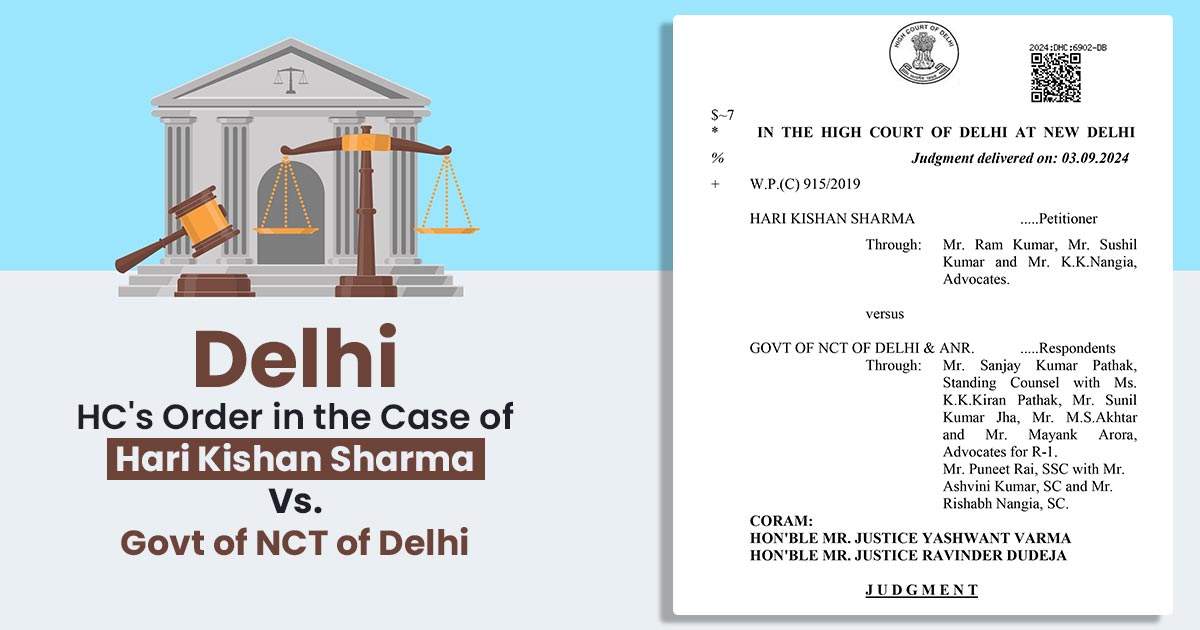
The Delhi High Court in a judgment ruled that the income tax department could not refuse the refund claim of the assessee as the Tax Deducted at Source TDS is not shown in Form 26AS. The order of the department has been quashed by the court rejecting the application of the assessee to file an amended return and asking that the refund get processed consequently.
The case is that the taxpayer did not file his ITR for the Assessment Year (AY) 2010-11 dated June 24, 2010, declaring an income of ₹5,26,580. U/s 143(1) of the Income Tax Act, 1961 the return was processed, on January 27, 2011.
The taxpayer had received enhanced compensation of Rs 18,59,239 under the Land Acquisition Act, 1894, in the Financial Year (FY) 2009-10. The Land Acquisition Collector (LAC) (South) deducted TDS of Rs 1,68,118 on this compensation. However, this TDS was not shown in his Form 26AS, a consolidated annual tax statement.
The taxpayer filed a writ petition as of the discrepancy asking for a direction to the LAC (South) to furnish the credit for the TDS deducted. The Delhi HC on October 25, 2017, asked the LAC (South) to address his grievance. Thereafter, LAC issued an amended Form 16A on December 2, 2017.
Following that the taxpayer appealed to the income tax department to permit him to file an amended return for AY 2010-11 and to condone the delay u/s 119(2)(b) of the Income Tax Act. The department rejected his application, quoting Central Board of Direct Taxes (CBDT) Circular No. 09/2015 on June 9, 2015. It was claimed by the department that the applications for the condonation could not be considered after 6 years from the finish of the pertinent assessment year.
A bench, Justice Yashwant Varma, and Justice Ravinder Dudeja discovered the department’s stance untenable. The court carried that a CBDT circular cannot override statutory provisions or charge a limitation period for taxpayers to pursue legal remedies.
Regarding the last observation, the relevant authority has adopted an entirely unreasonable position, disregarding the fact that no Circular from the Central Board of Direct Taxes (CBDT) or any instruction could establish a limitation period for a citizen seeking to approach this Court and invoke its jurisdiction under Article 226 of the Constitution, the court remarked.
It was remarked by the judges, that the tax was duly deducted via LAC (South) and that the non-reflection in Form 26AS was not attributable to any fault on the taxpayer’s end. As a result, denying the refund for this reason was not justified.
The court directs to various sections of the Income Tax Act to reinforce its decision. First, it referenced Section 199, which indicates that any deduction of tax at the source is considered a tax payment on behalf of the individual whose income experienced the deduction. This indicates that when tax is deducted at the source (TDS), it is treated as if the taxpayer has already settled that tax amount, even if it does not show up in Form 26AS.
Secondly, the court cites section 205 of the Income Tax Act, which restricts the department from asking tax from taxpayers if the same has previously been deducted at source. The same provision safeguards the assessees from being obligated to tax amounts that have been deducted via deductor however not remitted or shown as of the administrative errors.
Moreover, the court emphasized Section 237 of the Income Tax Act, which grants individuals the right to receive a refund if the amount of tax they have paid exceeds the amount they are liable to pay. This section emphasizes the taxpayer’s entitlement to claim a refund when they have paid more tax than is rightfully owed, ensuring that they are not unfairly disadvantaged by overpaying.
Hence, the court mentioned Section 155(14) of the IT Act, which permits the Assessing Officer to revise an assessment if a TDS certificate is provided within two years from the end of the assessment year, even if it was not submitted with the original return. This provision allows taxpayers to amend their returns and claim credits for TDS deductions that were initially overlooked, ensuring that they receive all the benefits they are entitled to.
The Delhi HC quashing the impugned order on October 23, 2018, asked the income tax department to accept the amended return of the taxpayer, which he should file within 4 weeks. It was directed to the department to process the refund as per the law and regard the provisions pertinent to the interest on the late refunds.
“The respondents while framing the order for refund shall also bear in mind the statutory regime which applies concerning interest in case of delayed disbursal and credit,” the court mentioned.
Ruling quotes that procedural lapses or administrative errors like non-reflection of TDS in Form 26AS shall not upset assessees who adhered to their regulatory and compliance obligations.
| Case Title | Hari Kishan Sharma Vs. Govt of NCT of Delhi |
| Citation | W.P.(C) 915/2019 |
| Date | 03.09.2024 |
| Counsel For Petitioner | Mr Ram Kumar, Mr Sushil Kumar and Mr K.K.Nangia |
| Counsel For Respondents | Mr Sanjay Kumar Pathak, Ms K.K.Kiran Pathak, Mr Sunil Kumar Jha, Mr M.S.Akhtar and Mr Mayank Arora |
| Delhi High Court | Read Order |